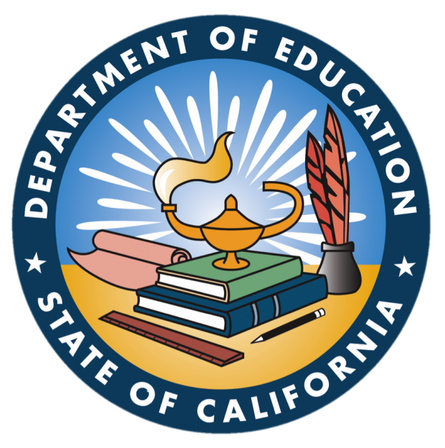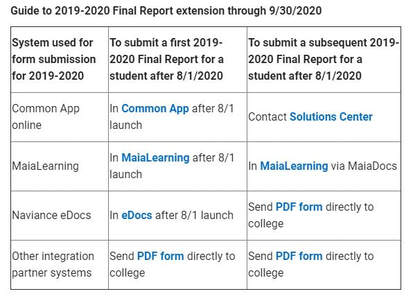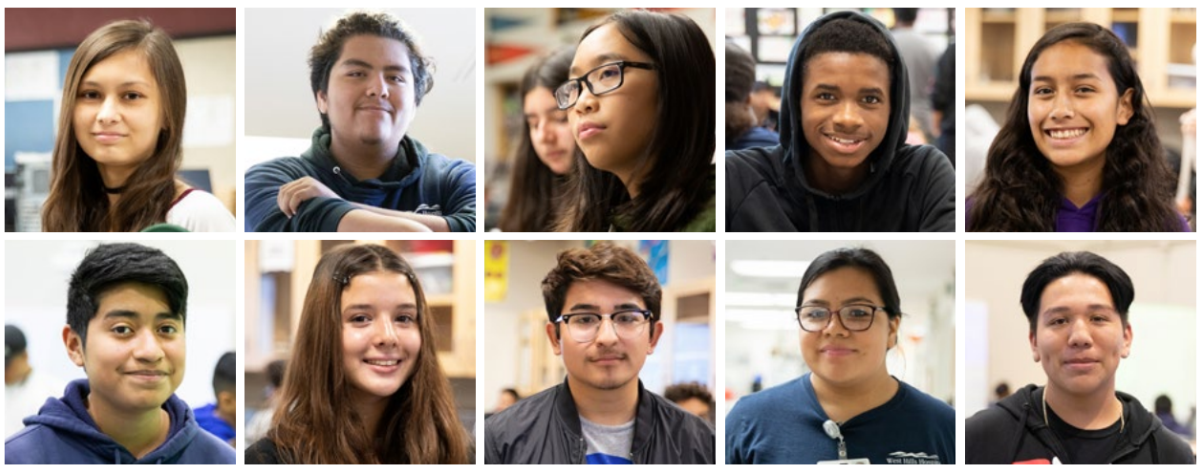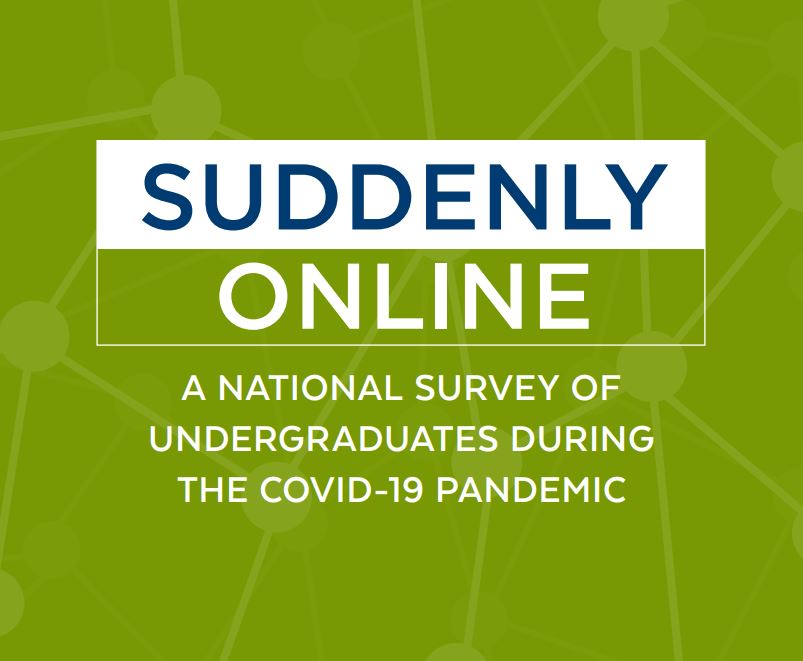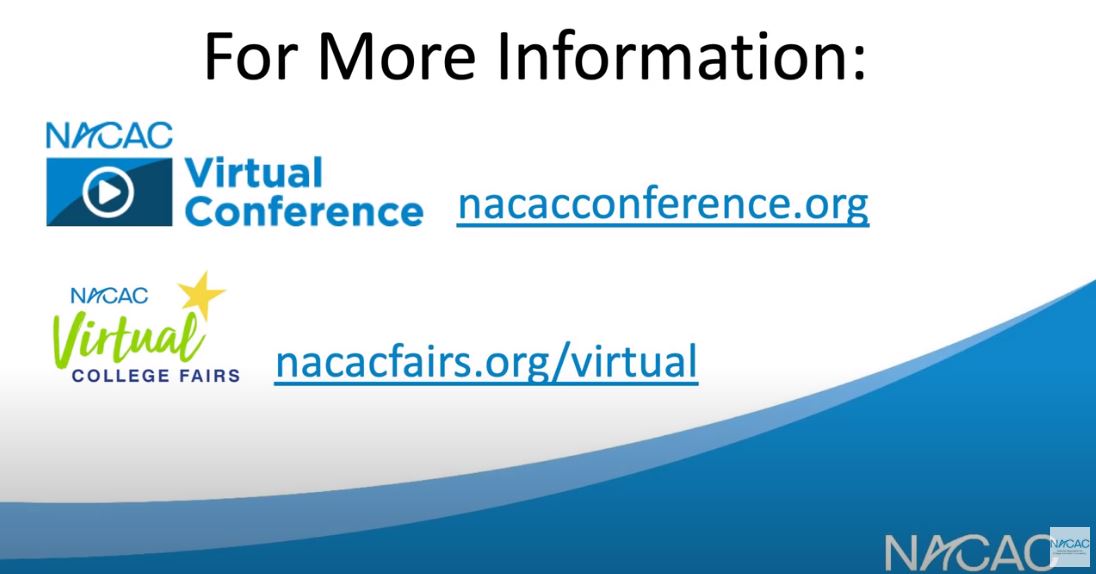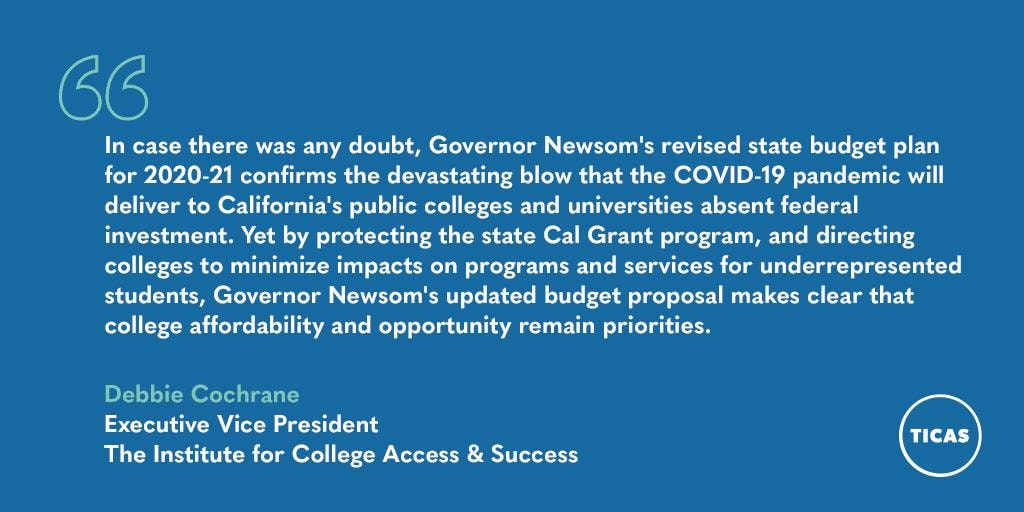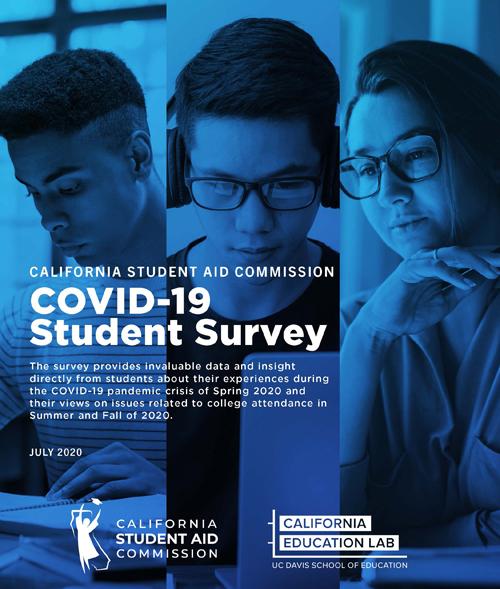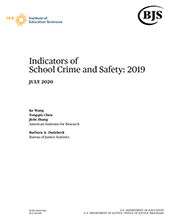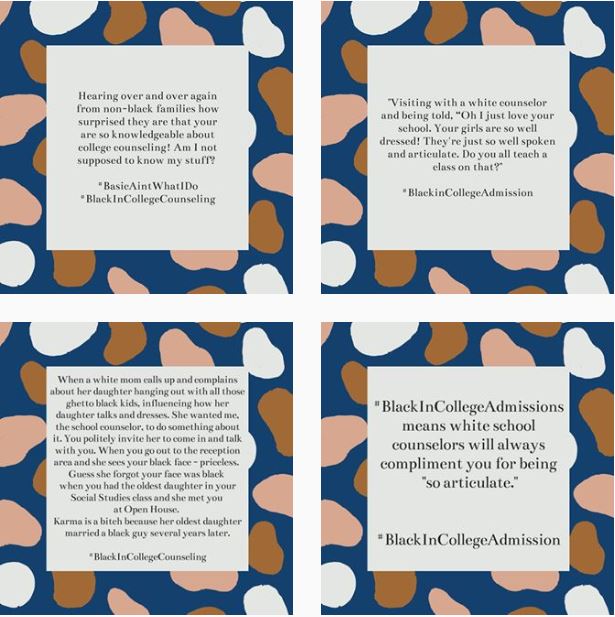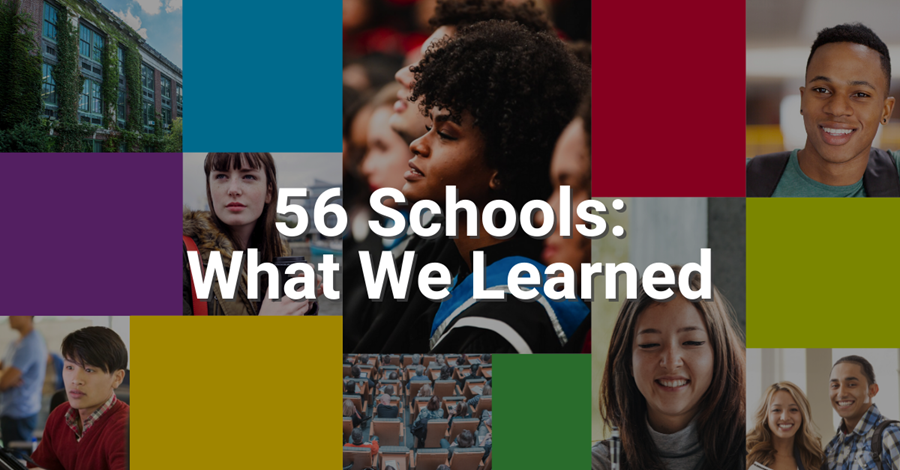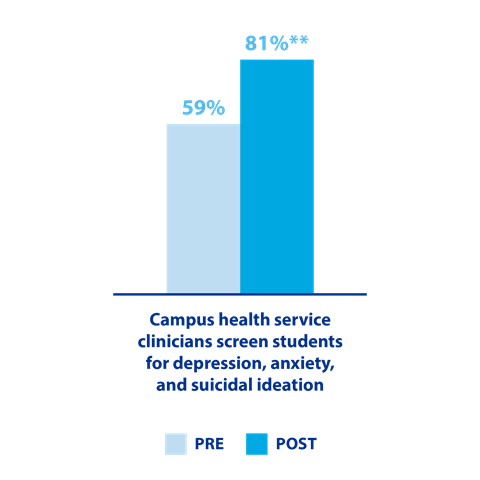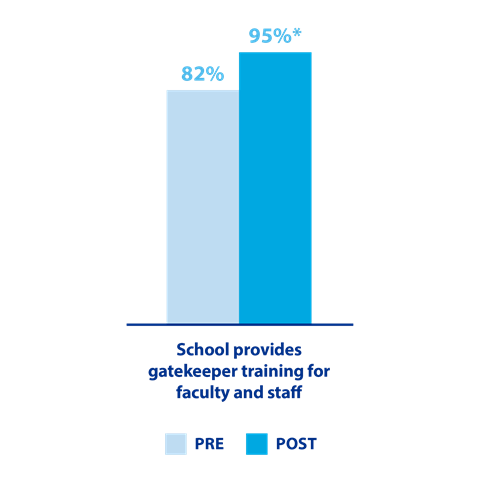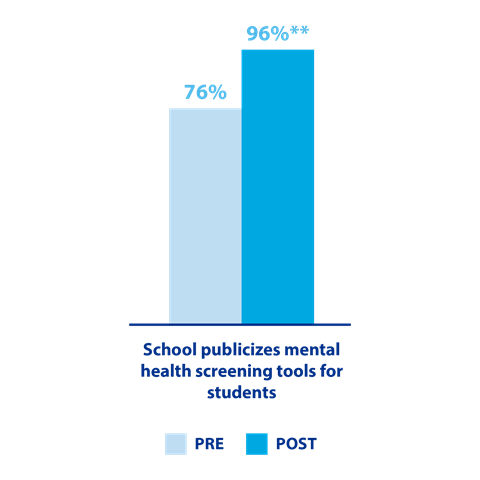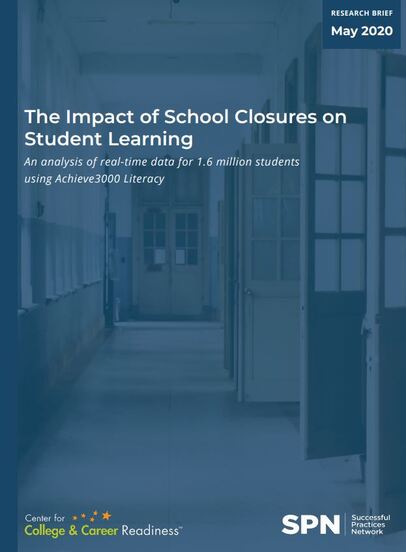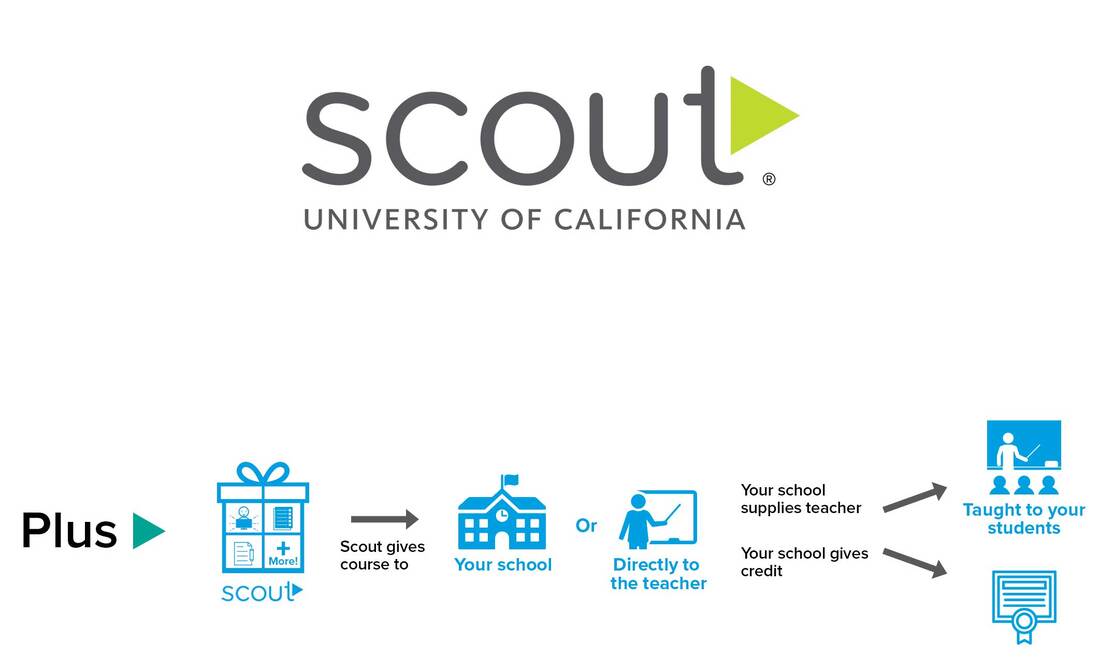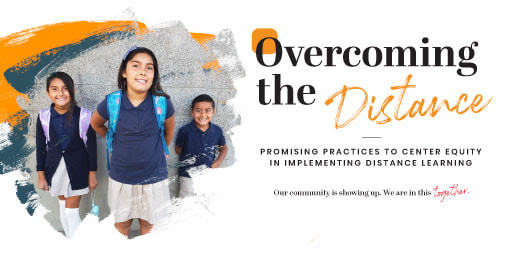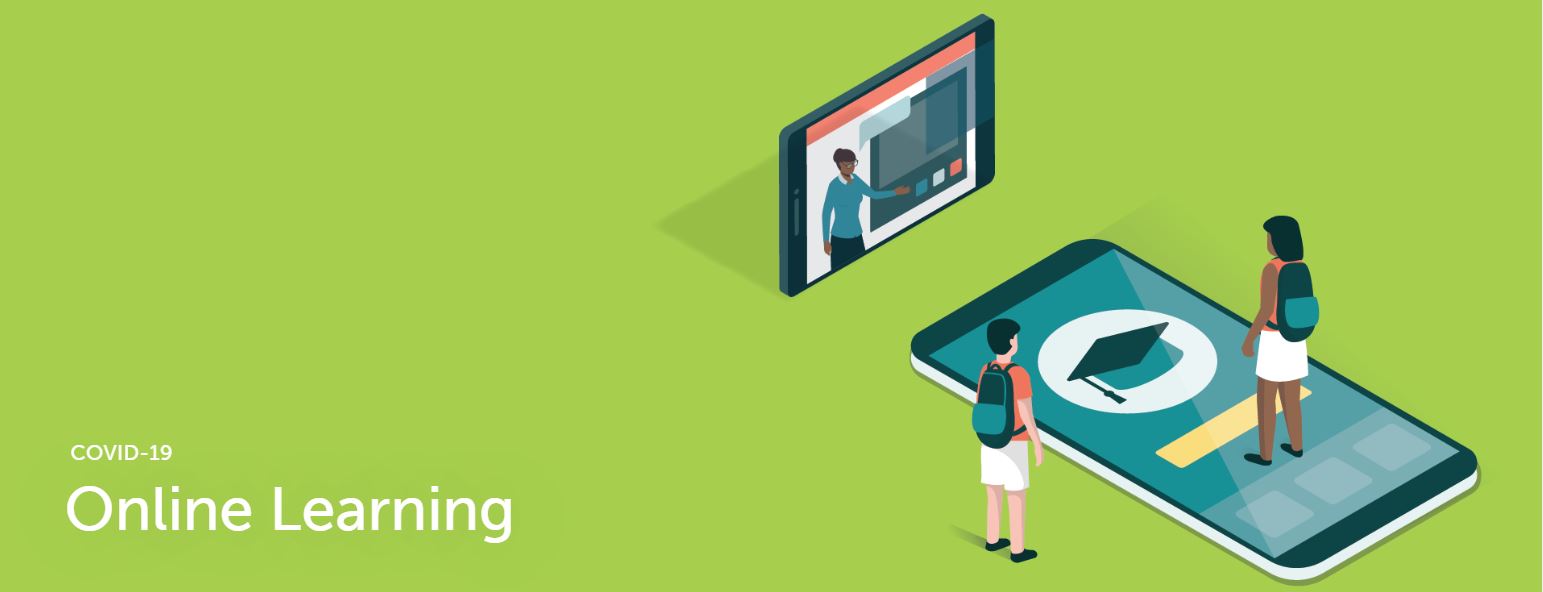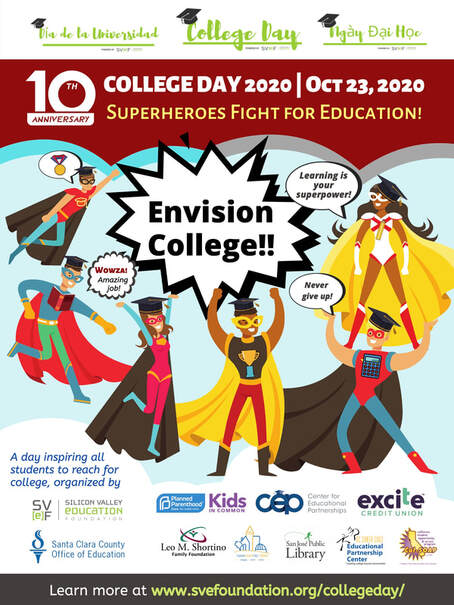COVID-19 K-20 Support
Here at AdvancED we believe whole-heartedly in the complete person. Whether you are a teacher, counselor, faculty, administrator, or serve another function at a K-12 or college institution, you are undoubtedly impacted by the closure of schools and districts.
We're sharing resources from our education and ed tech professionals, advocates, and funders near and far. Check this page for resources, lessons, and tips so you can keep students and education teams engaged.
We're sharing resources from our education and ed tech professionals, advocates, and funders near and far. Check this page for resources, lessons, and tips so you can keep students and education teams engaged.
CDE Update
|
CDE COVID-19 Updates
From CDE From State Superintendent Tony Thurmond Dear School Communities and Partners: Now that we know most of our students will be starting the next school year in distance learning, our focus urgently shifts to supporting our school communities as they prepare for virtual learning. This includes helping our students acquire the devices and connectivity they need to access their educators, and providing additional support to strengthen distance learning strategies. I want to make sure all of our school districts are aware of and take advantage of the $5.3 billion available in the state budget to school districts to acquire devices, strengthen distance learning, and address learning gaps. These Learning Loss Mitigation Funds are authorized by the 2020–21 state budget, which allocates $5.3 billion to local educational agencies to support transitional kindergarten through twelfth grade academic achievement, professional learning, mitigate learning gaps exacerbated by COVID-19 school campus closures, and purchase computing and connectivity devices. We are grateful that the Governor’s Office provided an overview during our last Digital Divide Task Force hearing this week, and expect more support from us in the coming days. But there’s no need to wait: School districts are now able to apply for these funds. |
Announcements & News Releases
|
Additional CDE Resources
- At its meeting on July 8, 2020, the State Board of Education approved the Schedule of Significant Events (timeline) for the 2021 Arts Education and World Languages Instructional Materials Adoptions. These materials will support the implementation of the SBE-adopted content standards and will be consistent with the guidance in the California Arts Education Framework for Public Schools, Transitional Kindergarten Through Grade Twelve (Arts Framework) and the World Languages Framework for California Public Schools, Kindergarten Through Grade Twelve (WL Framework). For more information about the instructional materials adoptions, please visit https://www.cde.ca.gov/ci/vp/im/ for Arts Education and https://www.cde.ca.gov/ci/fl/im/ for World Languages.
- The Student Achievement and Support Division is accepting applications for the 2021 California Teachers of the Year (California TOY) Program through Thursday, August 27, 2020! The purpose of the California TOY Program is to honor the teaching profession and to heighten interest in teaching as a career. Due to the COVID-19 pandemic, the California TOY program has made some changes to the program. Please visit the CDE Awards web page at https://www.cde.ca.gov/ta/sr/ct/ to learn more about the changes that have been made to the program, eligibility criteria, selection process, and timeline of activities. The application and scoring rubrics can also be found on the CDE Awards web page. Please send questions to the CDE Awards Team at [email protected].
The 2020-21 Learning Continuity and Attendance Plan Template and Instructions will be posted to the CDE Learning Continuity and Attendance Plan web page at https://www.cde.ca.gov/re/lc/learningcontattendplan.asp by August 1, 2020. Please email questions regarding the template or instructions to [email protected]. - SSPI Ethnic Studies Webinar Series: Asian American Studies (July 21, 2020). State Superintendent of Public Instruction Tony Thurmond and the CDE hosted the third in a series of virtual classroom events on ethnic studies to engage students in a dialogue about their significance. An archived broadcast can be found on the CDE Facebook page at https://www.facebook.com/watch/live/?v=591031661596986.
- California Collaborative for Educational Excellence (CCEE) Learning Acceleration: A webinar on accelerating instruction in the coming year (July 22, 2020). The slides and an archived video from this webinar are available on the CCEE COVID-19 Distance Learning Technical Assistance Resources web page at https://ccee-ca.org/distance-learning.asp#Calendar.
- Closing the Digital Divide Task Force Hearing (Thursday, July 23, 2020). State Superintendent of Public Instruction Tony Thurmond and leaders serving on the Closing the Digital Divide Task Force identified new resources and partnerships to support California schools preparing for distance learning this fall. To view the archived broadcast of the hearing, go to: https://www.facebook.com/watch/live/?v=663054521222539
College & University Updates
|
UC Welcomes the Next President: Michael V. Drake, M.D.
From the University of California Newsroom The University of California Board of Regents has appointed Michael V. Drake, M.D., as the 21st president of UC’s world-renowned system of 10 campuses, five medical centers, three nationally affiliated labs, more than 280,000 students and 230,000 faculty and staff. Drake has a long and distinguished career in higher education, most recently as president of The Ohio State University (OSU) from 2014 until this past week. Prior to his six years at OSU, his entire academic career has been at UC, including as chancellor of UC Irvine for nine years from 2005 to 2014 and as the systemwide vice president for health affairs from 2000 to 2005. “Much has changed in the 15 years since I was given the privilege of becoming chancellor at UC Irvine, but not my absolute belief in this great University and its time-honored mission,” Drake said. “I look forward to working with the regents, chancellors, students, faculty, staff, alumni, and our broader community as we, together, guide the University through the challenging times ahead. Brenda and I are thrilled to be back. Fiat Lux!” Read more about the next UC President. |
|
Common App Extends 2019-20 Final Report and transcript submissions
From The Common App In response to the COVID-19 pandemic, counselors can submit Final Reports and transcripts for the 2019-2020 application through September 2020. This extended support will become available after the launch of the 2020-2021 application on August 1, 2020. Review the table to the right for additional details. Click here for read this Common App newsletter issue. |
More news from Common App
- Guidance for DACA Students. Common App applauds the decision of the Supreme Court to uphold DACA. We believe that all students, regardless of their immigration status, should have the ability to apply to and attend college without fear of reprisal. Students who are undocumented or who currently hold DACA (Deferred Action for Childhood Arrivals) status are welcome to apply using Common App. With the launch of the 2020-2021 application, undocumented students will find guidance through the Solutions Center portal on how to identify their citizenship within the application. If you are working with undocumented students, this guidance will help them complete the citizenship questions on the application. As always, if additional help is needed, students and counselors can find assistance 24/7 with our Solutions Center team.
- 42 new colleges and universities added to the Common App membership. The list of new members includes the following, to name a few in each region:
- Mid-Atlantic: Bryn Athyn College (PA), Carlow University (PA), and Medaille College (NY)
- Mid-West: Northern Illinois University (IL), University of Wisconsin-Milwaukee (WI), and Wilmington College (OH)
- South: Texas Tech University (TX), Tuskegee University (AL), University of Georgia (GA), and Virginia Tech (VA)
- West: Fresno Pacific University (CA) and University of Colorado at Colorado Springs (CO)
- International: New College of the Humanities, London
|
Students Speak Out Amid the Pandemic
From LinkedLearning Alliance Students are facing innumerable challenges right now. They are missing out on essential milestones, navigating distance learning, supporting their families during stay at home orders, and more. Despite this delicate balance of responsibilities, young people want to be engaged in conversations around their education and their futures. This is what the Alliance learned from a recent survey of 1,400 juniors and seniors across seven key Linked Learning districts in California. |
Students from Antelope Valley, Lindsay, Long Beach, Los Angeles, Oakland, Pasadena, and San Bernardino City Unified School Districts participated in this survey process between April and June 2020. In their responses, these juniors and seniors shared thoughtful and honest reflections on how the pandemic has impacted their high school experiences and their postsecondary plans and offered specific advice for those in decision making positions to keep students motivated and connected to a sense of purpose in the coming school year.
Among the many perspective shared, Linked Learning students commented on:
Despite the lack of clarity in their academic, college, and career endeavors, students continued to find value in the core components of Linked Learning and the connections it maintained despite school closures. The majority of both juniors and seniors cited core Linked Learning practices—including peer collaboration, portfolio defenses, working with advisors, and clarifying career goals—as valuable to their educational experiences. Students also cited the importance of the relationships they’ve built with their teachers, counselors, industry partners, and peers.
Among the many perspective shared, Linked Learning students commented on:
- What engaged them during distance learning, and what they need to succeed in new virtual and hybrid environments
- Their desire for greater clarity and context around expectations and decisions being made about coursework, grades, and college admissions
- Their struggles with motivation and how to balance family needs with meaningful learning
- Their postsecondary plans and how they have changed in light of the pandemic
Despite the lack of clarity in their academic, college, and career endeavors, students continued to find value in the core components of Linked Learning and the connections it maintained despite school closures. The majority of both juniors and seniors cited core Linked Learning practices—including peer collaboration, portfolio defenses, working with advisors, and clarifying career goals—as valuable to their educational experiences. Students also cited the importance of the relationships they’ve built with their teachers, counselors, industry partners, and peers.
|
Suddenly Online: A National Survey of Undergraduates During the COVID-19 Pandemic
From Digital Promise College students’ satisfaction dropped sharply after schools shifted to all-online courses during the COVID-19 pandemic. Undergraduate students struggled to stay motivated and missed receiving feedback from instructors and collaborating with fellow students. Significant numbers of students had problems with their internet connections, software, or computing devices—serious enough to impede their participation in their courses. Still, most students did not attribute their struggles to poor instructor preparation or limitations inherent in online learning. This report describes these and other results from Digital Promise’s national, random-sample survey of more than 1,000 college students whose coursework moved from in-person to completely online this spring |
|
NACAC Announces All Fall Programming to go Virtual
From NACAC NACAC CEO Angel B. Perez announced plans today for a Fall 2020 NACAC Virtual Conference, Virtual College Fairs, and a commitment to new online programming the rest of the academic year. View his message to members and read July 21 press release. |
College Openings Update: Options for Qualified Students
From the National Association for College Admission Counseling (NACAC)
NACAC’s annual College Openings Update: Options for Qualified Students (formerly the Space Availability Survey) is a voluntary listing of NACAC member postsecondary institutions that are still accepting applications from prospective freshman and/or transfer students for the upcoming fall term. Now in its 33rd year, the College Openings Update is designed as a tool for counselors, parents and others assisting students who have not yet completed the college admission process. Typically, colleges will continue to join the update after the May 5 public release date, so check back periodically to see additional colleges still accepting applications.
As of July 26, there are 23 colleges in California still accepting applications from prospective freshman and/or transfer students for the upcoming fall term, including: Humboldt State, Marymount California University, Mills College, Mount Saint Mary's University, Santa Clara University, UC Riverside, University of San Diego, University of San Francisco, and University of the Pacific.
From the National Association for College Admission Counseling (NACAC)
NACAC’s annual College Openings Update: Options for Qualified Students (formerly the Space Availability Survey) is a voluntary listing of NACAC member postsecondary institutions that are still accepting applications from prospective freshman and/or transfer students for the upcoming fall term. Now in its 33rd year, the College Openings Update is designed as a tool for counselors, parents and others assisting students who have not yet completed the college admission process. Typically, colleges will continue to join the update after the May 5 public release date, so check back periodically to see additional colleges still accepting applications.
As of July 26, there are 23 colleges in California still accepting applications from prospective freshman and/or transfer students for the upcoming fall term, including: Humboldt State, Marymount California University, Mills College, Mount Saint Mary's University, Santa Clara University, UC Riverside, University of San Diego, University of San Francisco, and University of the Pacific.
Financial Aid Updates
|
TICAS Statement on 2020-21 California May Budget Revision
From The Institute for College Access & Success (TICAS) Governor Newsom unveiled his revised CA state budget plan for 2020-21. Read TICAS' statement here. The Institute for College Access & Success is a trusted source of research, design, and advocacy for student-centered public policies that promote affordability, accountability, and equity in higher education. For more information see www.ticas.org or follow us on Twitter and Facebook. |
|
Supporting First Gen, Low-income students from home - a call for action
From Todd Hicks, Cristo Rey San Jose Todd Hicks was asked by the WACAC Communications Committee to share his thoughts, experiences, and advice on working from home and how best to continue helping students during these uncertain times. Todd Hicks is the Director of University Access and Success at Cristo Rey San José. We are so excited that Todd highlighted Meredith Curry for her recent blog article series regarding financial aid! Read his article! "I would also like to thank Meredith Curry for a recent series of articles that highlights the financial aid realities and challenges faced by 1st generation college students, Financial Aid, College Choice, and COVID-19." |
|
COVID-19 Student Survey
From CSAC As the global pandemic continues to test our state, the California Student Aid Commission (CSAC) is committed to serving the needs of our diverse students and understanding the barriers to degree completion in good economic times and challenging ones. CSAC and the UC Davis Education Lab’s newly released results from the Spring 2020 COVID-19 Student Survey provide invaluable data and insight directly from 76,000 students about their experiences during the pandemic and their views on issues related to college attendance in Summer and Fall of 2020. The survey found that students have great concern about what the future holds, uncertainty about where they will attend, and how they will afford college and other basic needs expenses. Striking findings include:
|
For more information on our #CSACStudentSurvey read more here.
A recorded version of our webinar is also available on our Empowering California’s Students: A CSAC Webinar Series landing page.
Are you interested in supporting via social media? Download our social media kit and please follow along in this journey via #CAStudentsSpeak.
A recorded version of our webinar is also available on our Empowering California’s Students: A CSAC Webinar Series landing page.
Are you interested in supporting via social media? Download our social media kit and please follow along in this journey via #CAStudentsSpeak.
|
Indicators of School Crime and Safety
From National Center for Education Statistics Crime in the nation’s schools and college campuses has declined overall during the past two decades, according to a new report, Indicators of School Crime and Safety 2019. The report, jointly produced by the National Center for Education Statistics at IES and the Bureau of Justice statistics at the U.S. Department of Justice, also highlights new data on mental health services, victimization, school conditions, school environment, and safety and security measures at school |
Key findings from the report include:
- During the 2017–18 school year, about 51 percent of public schools (or 42,200 schools) reported providing diagnostic mental health assessments to evaluate students for mental health disorders. Approximately 38 percent of public schools (or 31,500 schools) reported providing treatment to students for mental health disorders.
- In spring 2016, crime in the neighborhood and selling or using drugs or excessive drinking in public were the two most commonly reported school neighborhood problems. Based on school administrator reports, 34 percent of fifth-graders attended schools where crime in the neighborhood was a problem, and 31 percent attended schools where selling or using drugs or excessive drinking in public was a problem.
- From 1992 to 2018, the total victimization rate and the rates of specific crimes—thefts and violent victimizations—declined for students ages 12–18, both at school and away from school.
- The percentages of public schools that recorded one or more incidents of violence, theft, or other crimes and that reported such incidents to the police were lower in 2017–18 than in every survey year between 1999–2000 and 2009–10. However, the percentage of schools that recorded serious violent incidents was higher in 2017–18 than in 2015–16 (21 vs. 15 percent).
- The percentage of public schools that reported student bullying occurred at least once a week decreased from 29 percent in 1999–2000 to 14 percent in 2017–18.
- Between 2001 and 2017, the overall number of criminal incidents reported on postsecondary campuses decreased by 31 percent, from 41,600 to 28,900 incidents. However, the number of reported forcible sex offenses on campus increased from 2,200 in 2001 to 10,400 in 2017 (a 372 percent increase).
- In 2017, a total of 958 hate crimes were reported on postsecondary campuses. Three-fourths (77 percent) of these hate crimes were motivated by race, religion, or sexual orientation.
Professional Development News
|
Taking the Movement By Storm
From LaToya Fernandez 1.) Book me to help facilitate those difficult conversations about race, equity, inclusion and cultural responsiveness 2.) Book me to perform and inspire and motivate your team 3.) Book me to develop robust and empowering youth programming in your school, organization or community.
For more general information please visit www.youthhype.org |
|
#BlackInCollegeAdmission
From Collegewise on the NACAC Exchange The #BlackInCollegeAdmission hashtag was created to amplify Black voices and to call attention to the discrimination and racism that Black admissions officers continue to face in this profession. I’m sharing these posts on behalf of Black colleagues in a concerted effort to abate apathy and push for systemic and equitable change. White and non-Black POC colleagues: please take some time to read through these powerful and vulnerable Instagram posts and reflect on where you are personally and professionally in helping dismantle systems of oppression. And if you know other folks (particularly those in positions of power) who should hear these stories, please share out. Black admissions colleagues: if you’d like to share your own experiences, feel free to use the hashtag above. (There are also versions for #BlackInCollegeCounseling as well as for other POC.) If you’d prefer, you can also submit anonymously through the link in the bio. Thank you to all the Black admission officers who have already contributed. Your courage is seen. |
|
Supporting and Addressing Students' Mental Health Needs On-Campus
From JED JED recently compiled data from the first 56 schools that have completed the JED Campus program who have implemented JED’s signature Comprehensive Approach to Mental Health Promotion and Suicide Prevention for Colleges and Universities. The Comprehensive Approach is an evidence-based model that can be used to assess efforts currently being made on campus, identifying existing strengths and areas for improvement in order to create a culture of caring and a mental health safety net around students. |
The goal is to have a positive and lasting impact on the mental health of students by customizing and augmenting campus-wide supports to build on existing student mental health resources and programming, and strengthen substance misuse and suicide prevention efforts.
The evaluation data from these 56 JED Campuses that completed the program between 2014 and 2020 shows clear evidence that the Comprehensive Approach is having a significant impact on the policies, programs, and systems designed to promote student mental health and reduce risks for suicide.
The evaluation data from these 56 JED Campuses that completed the program between 2014 and 2020 shows clear evidence that the Comprehensive Approach is having a significant impact on the policies, programs, and systems designed to promote student mental health and reduce risks for suicide.
These schools have shown a marked increase in actions being taken to support and address students’ mental health needs. For example:
Explore the findings and learn how to bring these successes to your own campus.
- 81% of schools versus 59% at the beginning of JED Campus implemented standardized screenings for common mental health problems and suicidal ideation by health service clinicians at primary care visits.
- 95% of schools versus 82% at the beginning of JED Campus offered more gatekeeper training programs that help faculty and staff identify students at risk and refer them to counseling services.
- 96% of schools versus 76% at the beginning of JED Campus made screening tools more readily available, which helped students better identify their mental health symptoms in order to reach out for counseling services.
Explore the findings and learn how to bring these successes to your own campus.
|
The Impact of School Closures on Student Learning
From The Center for College & Career Readiness The coronavirus crisis has already reshaped primary and secondary education in America, as schools across the country have transitioned from classroom instruction to online learning for millions of students in a matter of weeks (EdWeek, 2020). Consensus is building that the consequences of closing schools before the end of the academic year will have significant and far-reaching implications for students’ learning. Already, a recent analysis by NWEA (2020) argues that students may return to school in fall 2020 with significant regression in skills. Using real-time student reading data from 1.6 million students in the United States, we have isolated specific trajectories for students based on their degree of engagement with online learning before and after school closures. Benchmarking to normed measures, specifically the Lexile Framework® for Reading and a related body of predictive evidence on reading outcomes, we demonstrate already-present, measurable trends, using data through April 30, 2020. Read the full research brief. |
Educating All Learners During the COVID-19 Disaster
From The Educating All Learners Alliance
The Educating All Learners Alliance (EALA) is an uncommon coalition of organizations committed to resource sharing and community-building that supports the efforts of the education community to meet the needs of students with disabilities during the COVID-19 pandemic.
We are committed to showing the path to possible for practitioners by providing curated, searchable resources, access to experts, and examples from the field.
This is an effort for educators, by educators. Ways that you can use the site:
From The Educating All Learners Alliance
The Educating All Learners Alliance (EALA) is an uncommon coalition of organizations committed to resource sharing and community-building that supports the efforts of the education community to meet the needs of students with disabilities during the COVID-19 pandemic.
We are committed to showing the path to possible for practitioners by providing curated, searchable resources, access to experts, and examples from the field.
This is an effort for educators, by educators. Ways that you can use the site:
- Search the resource library. Our experts have curated a list of credible and actionable resources paired with examples from the field of schools and teachers adapting ways of meeting student needs. Use the search function to find a resource or example quickly. If we’re missing something you need, let us know - we’ll use our alliance to find it or create it!
- Join the member community. Create a login and post discussion questions, participate in the discussion, share a bright spot, or write a blog post.
- Contribute to a Forum. Forums are an area of the site where you can connect with your peers to discuss successes and challenges. Our national experts will also join the conversation.
- Submit a resource. We know how much ingenuity is out there. Submit a resource and our national network of experts will review it for posting.
- Attend a webinar. Every week we will have three webinars or office hours for you to ask experts direct questions and get the information you need.
- Sign up for updates.
|
UC Scout online course curriculum
From the University of California, Office of the President UC Scout provides the full range of courses needed for admission to UC and CSU, known as the A-G requirements, plus 26 Advanced Placement classes. It was created to ensure all California students could get the classes they need to be eligible and competitive for college, even if their high school didn’t have those offerings. California public school students and teachers can use the curriculum for free! |
An in-depth article on UC Scout including features, user perspectives, and pricing for private and out-of-state schools can be found on the UC Newsroom.
- UC Scout’s “Basic” curriculum can be used by teachers or students. For students, it includes access to an entire course’s worth of videos. Students don’t earn a grade or academic credit, but can use the material to study independently — for example, to bone up for an AP test or to catch up on a subject where they have fallen behind. For teachers, the Basic curriculum includes videos, quizzes and assignments. Teachers can use the Basic curriculum to supplement their own in-classroom or online delivery.
- The “Plus" curriculum is free to California public school teachers, and for a small fee to private and out-of-state schools. It includes the same suite of materials as the Basic offering, along with access to the learning management system. This allows any teacher to lead fully online classes for their students: Teachers just register for the technology and go. They are also free to customize the content and swap it out with their own material.
- On-demand classes use the same materials available through Basic and Plus, but are led by UC Scout teachers. Students can earn grades and academic credits. Students can sign up now to take classes for the spring term, or register for summer classes between now and July 15.
|
Overcoming the Distance Policy Brief
From Advancement Project California Today, we released Overcoming the Distance, a rapid response policy brief that outlines the immense challenges of distance learning for California’s low-income families of color and provides solutions to address these obstacles. The brief finds that structural inequities, such as income inequality and residential segregation, have left many low-income families and students of color without the necessary tools to successfully participate in distance learning. Overcoming the Distance is one of a series of position statements to support the Californians most impacted by the international health pandemic. |
Remote Learning Resources
From Regional Education Laboratories (REL) Pacific
From Regional Education Laboratories (REL) Pacific
Resource ShareFrom time to time we'll catch wind of a great read that can support more equitable practices in leadership either at the K-12 or higher education levels. Please take a look and share with those who would benefit! For upcoming events, go to Events |
STEAM-Fueled Distance Learning Spring Field Trip Ideas
Because states across the nation are issuing stay-at-home orders and increasing their duration, there isn’t a chance this will be changing for students anytime soon. This gives teachers and parents few options to reunite students for in-class activities or events such as field trips. The good news is that many organizations have brought their exhibits and events online in wake of the recent community closures. This means that students have the opportunity to gain real-world experience that crosses into the realm of STEAM (science, technology, engineering, the arts and mathematics) while being confined at home. Some example organizations include:
SAM Labs has rounded up the ultimate list of field trips that are offered online for children to explore when they need a virtual adventure outside of home. |
CSU Newsletter for Santa Clara County Educators
San Jose State University has provided a link to a CSU Newsletter for Santa Clara County educators with regards to Early Assessment Program, CSU Applicants, and COVID-19 information.
Launch of CSAC’s Response to COVID-19 Web Page
From the California Student Aid Commission
This Special Alert from the California Student Aid Commission (Commission) announces the launch of our COVID-19 web page on the Commission’s website. The COVID-19 web page provides the Commission’s response, which includes:
As California continues to navigate this global pandemic, the Commission will update this web page with guidance and resources related to COVID-19. The public may access the web page at https://www.csac.ca.gov/covid19. Please share this widely among your colleagues and the students you serve.
The Commission will continue to serve students and institutions during this difficult time as we understand the importance of supporting students through their pursuit of higher education.
From the California Student Aid Commission
This Special Alert from the California Student Aid Commission (Commission) announces the launch of our COVID-19 web page on the Commission’s website. The COVID-19 web page provides the Commission’s response, which includes:
- A statement from our Executive Director, Marlene Garcia
- Frequently asked questions and resources for students
- Updates for institutions
- General updates and resources
As California continues to navigate this global pandemic, the Commission will update this web page with guidance and resources related to COVID-19. The public may access the web page at https://www.csac.ca.gov/covid19. Please share this widely among your colleagues and the students you serve.
The Commission will continue to serve students and institutions during this difficult time as we understand the importance of supporting students through their pursuit of higher education.
|
COVID-19 Online Learning From Digital Promise We are compiling some of the best resources and exemplars for schools and families preparing for online learning in response to COVID-19. As COVID-19 spreads rapidly in the United States, schools and districts are facing difficult decisions around how to protect their students and staff while continuing to prioritize learning and equity. |
Tips for higher education professionals working remotely
From Higher Education Recruitment Consortium (HERC)
Most higher education faculty, staff, and administrators aren’t fully accustomed to remote work. But the spread of coronavirus has prompted thousands of higher education employees to adapt to this new way of working, which is unfamiliar to many of us and brings a new set of challenges, especially for those of us working when family members are unexpectedly at home, too.
Read: Tips on Working Remotely
Read: Being Productive While Working Remotely
Tips for higher education professionals working remotely
From Higher Education Recruitment Consortium (HERC)
Most higher education faculty, staff, and administrators aren’t fully accustomed to remote work. But the spread of coronavirus has prompted thousands of higher education employees to adapt to this new way of working, which is unfamiliar to many of us and brings a new set of challenges, especially for those of us working when family members are unexpectedly at home, too.
Read: Tips on Working Remotely
Read: Being Productive While Working Remotely
|
College Day & COVID-19 Updates From College Day Committee 2020 We’d like to reassure you that our committee is still diligently working behind the scenes towards College Day for October 23, 2020. Given the circumstances, we have lifted the registration deadline past May 1st and will provide an extended deadline which will be communicated in our next letter. We know there are many unanswered questions in our community revolving around college admissions given the disruption caused by COVID-19. We are tentatively working on gathering questions and connecting with college and university leaders to help provide some insights and assuage any concerns. We will provide updates on the potential of this resource in the near future. In the meantime, we encourage you to continue to share and register for College Day: Registration link: http://bit.ly/2020CollegeDay If you have any questions, please don’t hesitate to email [email protected]. |
EdTech Resources & ToolsThanks to the following lists of free EdTech resources for students, schools, and districts. Resources include apps, videos, lesson plans, checklists, meditations, and more!
|
K-20 Education ImpactThanks to the following resources shared by communities like EdSurge. The following come from EdSurge webinars and other listserves.
|
AdvancED Consulting, LLC

